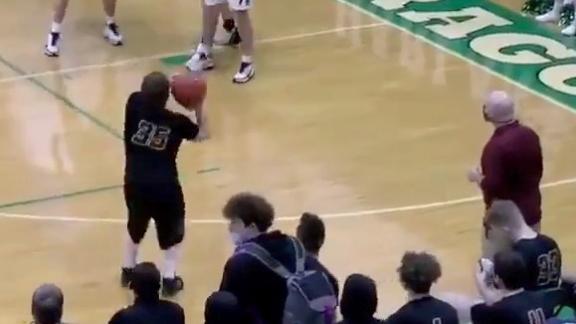The U.S. national women's hockey team is currently in Zurich, Switzerland, for the 2011 IIHF World Women's Championship. Caitlin Cahow checked in with espnW to to explain how Team USA is building a team culture that goes beyond any one person, player, game or tournament.
espnW: There are a total of 15 Olympians on the squad, including four-timers Jenny Potter and Angela Ruggiero. Fourteen of the players on Team USA won the World Title in 2009. However, there are seven newcomers to the team. How are they holding up in their first ever-international competition?
Cahow: They have not missed a beat. This team is very welcoming, and we have adopted a Team First mentality where, no matter what happens, or who is in the locker room at any given tournament, we are all representing one country -- for ourselves, and for all those who would love to wear those jerseys with us. We are on a quest to build a culture that goes beyond any one season or tournament, and it's pretty exciting to be a part of it.
espnW: How have playing conditions been in the unseasonably warm Zurich weather?
Cahow: We practice in an absolutely gorgeous facility that has windows on all sides, and looks like a wooden ark. It is completely beautiful, but gets rather hot in the 75-degree weather. It has been like a sauna in there, and you can see people avoiding the sunny patches on the ice because it is just too hot to skate through them. All of this adversity is just better preparing us for the tough medal round ahead.
espnW: How have you and the team spent your time away from the rink?
Cahow: We have had a great balance while in Zurich of on- and off-ice training, as well as team-building sessions and team sight-seeing trips. We have visited downtown Zurich, as well as nearby Lucerne. I am a not-so-secret-nerd when it comes to history and travel, so my teammates know that if they get stuck with me in a small group in some new corner of the world, I'm going to drag them to every museum and church and castle I can find for an edifying experience. I get a lot of flack from them, but I think they secretly enjoy it.
One funny story from this trip was when I took them to see the Marc Chagall stained glass windows at the Fraumunster Church. I was so excited to tell them all about the stained glass -- and they were having none of it. So by the time I was leading them around the Abbey cloister to look at the murals, they had completely tuned me out. So I decided to just start making things up -- historical facts and anecdotes. Finally, halfway through my dissertation on the historic War of 1812 memorial fountain (not accurate), they called me out. We had a good chuckle about it. Nerdy, I know, but that's what's so great about our team.
We have such a cast of characters -- 21 completely different personalities and backgrounds. We always have a good time with each other.
espnW: Canada steamrolled over its opponents to win the first four straight gold medals ever awarded in men's hockey, outscoring opponents 110-3 in the [inaugural Winter] Olympic Games in 1924. But women's hockey has been scrutinized for having not enough competition, and has been threatened with being cut from the Olympic Games. What is your take on the lopsided scores at the tournament so far, considering the scrutiny women's hockey has faced about not fielding enough competitive teams?
Cahow: I think it's important to remember that it is a game, after all. There are always going to be winners and losers, and the games will not always be even. Our sport has such a proud international and Olympic history. The women who play hockey long to leave their mark.
I think it's important to remember that before the [Lake Placid 1980] "Miracle on Ice," the Soviet Union was winning all of [its] games by upwards of 10 goals. No one ever challenged the legitimacy of men's hockey when it was a one-horse race for decades.
Women's hockey is growing more competitive, and the growth of the sport correlates directly with investment. The more the men's hockey governing bodies contribute to their women's programs, the more parity you're going to see. There are great women's players out there on every team, but the challenge is highlighting their achievements and continuing to invest in and grow the game at the international level. I am confident that it is possible.




